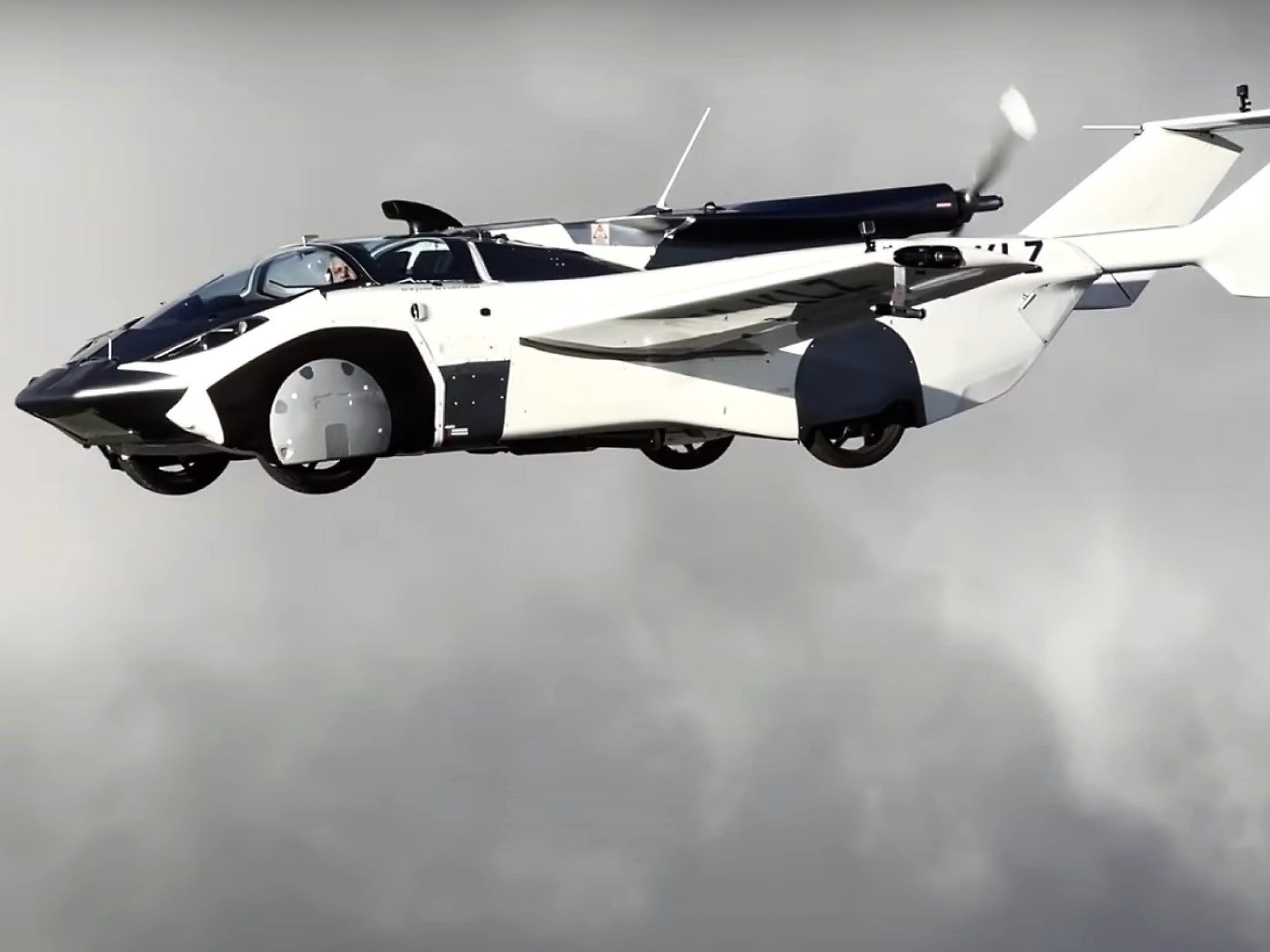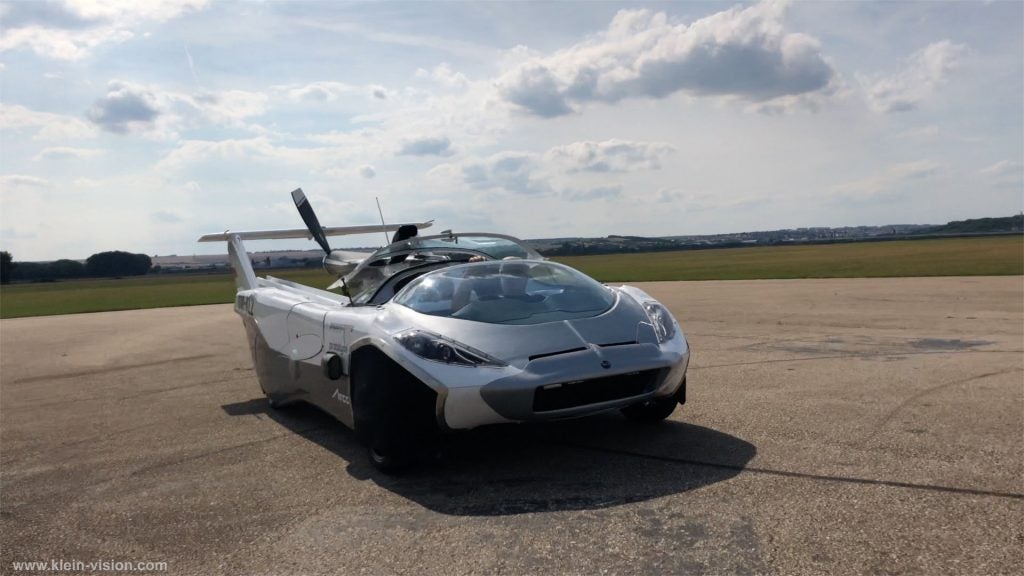Flying car firm plans London to Paris route after achieving airworthiness
Klein Vision says its AirCar can travel at 160km/h, meaning the journey would take just over two hours

Your support helps us to tell the story
From reproductive rights to climate change to Big Tech, The Independent is on the ground when the story is developing. Whether it's investigating the financials of Elon Musk's pro-Trump PAC or producing our latest documentary, 'The A Word', which shines a light on the American women fighting for reproductive rights, we know how important it is to parse out the facts from the messaging.
At such a critical moment in US history, we need reporters on the ground. Your donation allows us to keep sending journalists to speak to both sides of the story.
The Independent is trusted by Americans across the entire political spectrum. And unlike many other quality news outlets, we choose not to lock Americans out of our reporting and analysis with paywalls. We believe quality journalism should be available to everyone, paid for by those who can afford it.
Your support makes all the difference.A flying car company has said it plans to begin journeys between London and Paris “in the near future” after receiving a Certificate of Airworthiness from a European transport authority.
Klein Vision’s AirCar is capable of transforming from a car to a plane in two minutes and 15 seconds, and can hit speeds of over 100mph (160kph) once airborne, meaning the 340km trip between the two cities would take just over two hours.
Founded by Stefan Klein, the Slovakian startup has completed more than 70 hours of test flights that meet European Aviation Safety Agency (EASA) standards, including a 35-minute flight beween international airports in Nitra and Bratislava.
“AirCar certification opens the door for mass production of very efficient flying cars,” said Professor Klein. “It is official and the final confirmation of our ability to change mid-distance travel forever.”
Equipped with a BMW engine that runs on regular petrol-pump fuel, the AirCar can carry two people and could potentially be used as either a leisure vehicle or a commercial taxi service.
Once the wings are folded up, the hybrid plane-car takes the space of a normal parking spot.
The Slovak Transport Authority granted the AirCar its airworthiness certificate less than five years after the company was founded.
“Transportation Authority carefully monitored all stages of unique AirCar development from its start in 2017,” said René Molnár, director of the Civil Aviation Division of the Transport Authority of Slovakia.
“The transportation safety is our highest priority. AirCar combines top innovations with safety measures in line with EASA standards. It defines a new category of a sports car and a reliable aircraft. Its certification was both a challenging and fascinating task.”

Research published by GlobalData last year found that investments in Urban Air Mobility (UAM) solutions grew from $76 million in 2015 to $1 billion in 2020, heralding what it labelled a “new mobility revolution”.
The London-based data analytics firm warned that it will require public acceptance before it ever properly catches on.
“Even though there has been growing consumer awareness about the utility of UAM, gaining consumer confidence requires time and combined effort across the UAM ecosystem,” said Shagun Sachdeva, an innovation analyst at GlobalData.
“Manufacturers are aware that the widespread use of UAMs is likely to take years. However, their market arrival will disrupt the mobility landscape, which is already in transition.”

Join our commenting forum
Join thought-provoking conversations, follow other Independent readers and see their replies
Comments